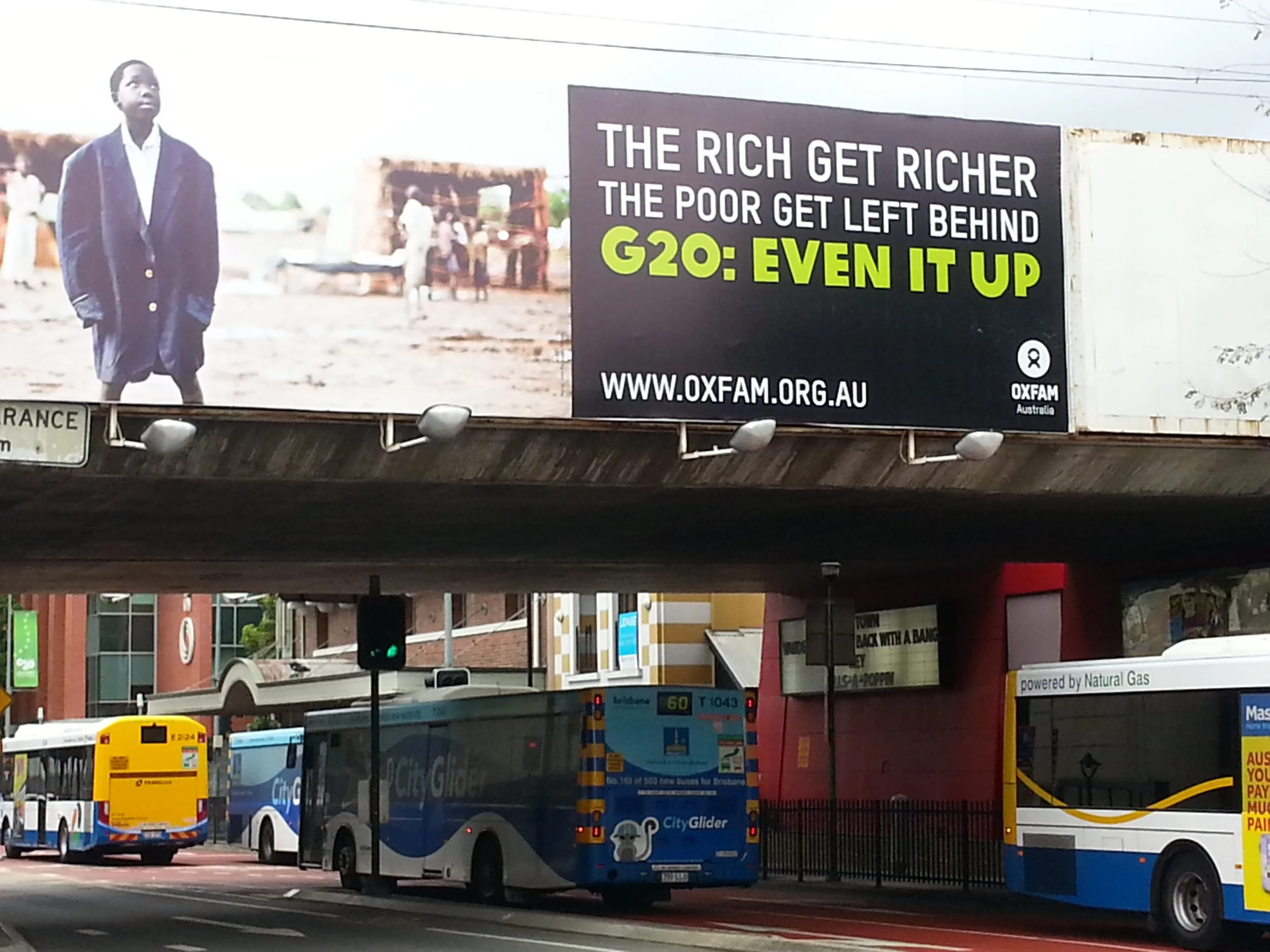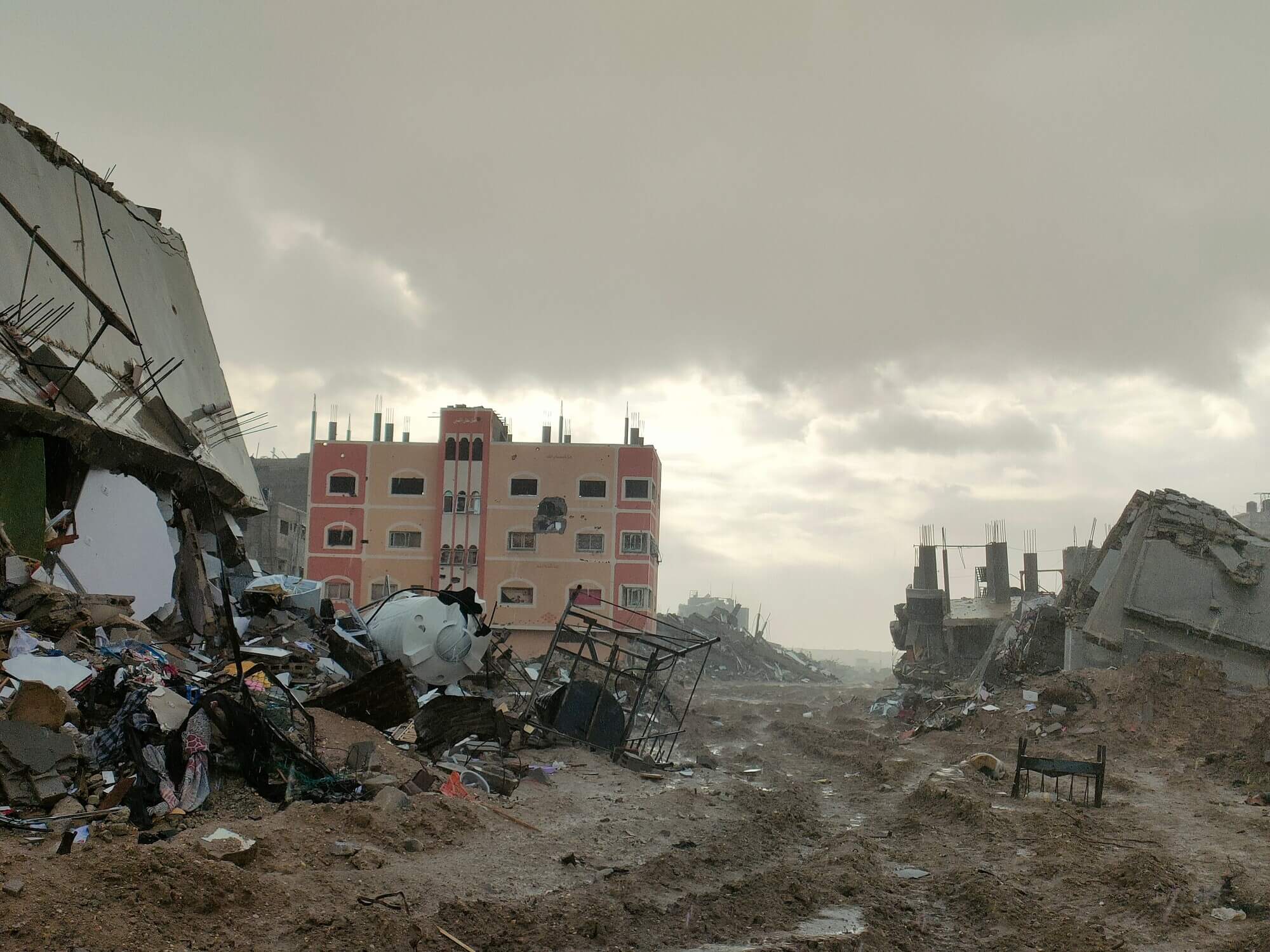Reece Kinnane, G20 Lead, Oxfam Australia
Welcome to Brisbane – Australia’s ‘New World City’, according to the City’s advertising. The Oxfam G20 team are here to push the G20 to do more, and to mean more, to the majority of the G20’s citizens.
Remarkably more than half of the people in G20 countries, the economic powers of the world, live below the poverty line of $2US per day. These people are mainly in China, India and Indonesia, large countries and major trading partners of Australia, this year’s host. The G20 can do something about this.
If the G20 want to boost growth, they need to tackle inequality as well.
The top priority for the G20 this year is economic growth. More specifically, the G20 leaders are trying to agree on a plan to boost global growth by 2% above trend over the next 5 years. Fair enough. However, inequality is rising across the world and in G20 countries too. On Wednesday, we reported that the total wealth of the G20 has increased by $US17 trillion the last year. But the fact is that 36 per cent of new wealth went to the richest 1 per cent of people in the G20.
Growth by itself is not going to cut it for us. We are here in Brisbane to ask the G20 to Even it Up. We are pushing the G20 to ensure that this growth is inclusive and shared between the rich and the poor in an equitable and sustainable way. The evidence, from the IMF, World Bank, OECD and others, is now clear – inequality is bad for growth. If the G20 want to boost growth, they need to tackle inequality as well. If the G20 want to lift the majority of people out of poverty they need to tackle inequality.
A strong and effective response from the G20 to the Ebola crisis is not only necessary to help people across West Africa whose lives have been destroyed by the disease, it is crucial to protect the economy.
We also need the G20 leaders to respond to the Ebola Crisis. The G20 countries, as the global economic and political powers, have a major role to play. We need their resources (medics, military and civilian personnel, funding) and their political will to turn this crisis around.
The second official priority for the G20 this year is to build global economic resilience and protect the economy from shocks. A strong and effective response from the G20 to the Ebola crisis is not only necessary to help people across West Africa whose lives have been destroyed by the disease, it is crucial to protect the economy. The World Bank has warned that if the virus spreads to neighbouring countries, the economic cost could be between $27 billion and $32 billion by the end of next year.
So, we’re here in Brisbane, pushing these messages and raising the voice of tens of thousands of people who have demanded that the G20 acts on these issues. Let’s see how it goes….
Click here to view live updates from the summit




